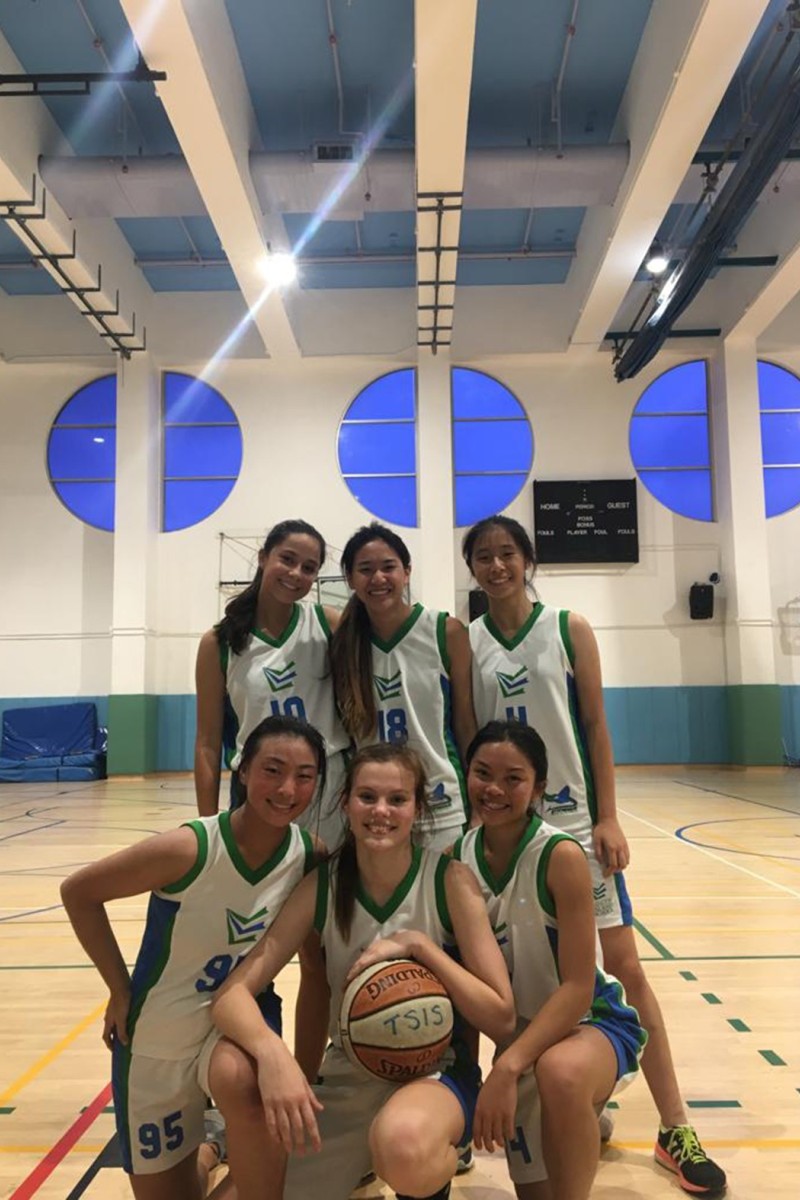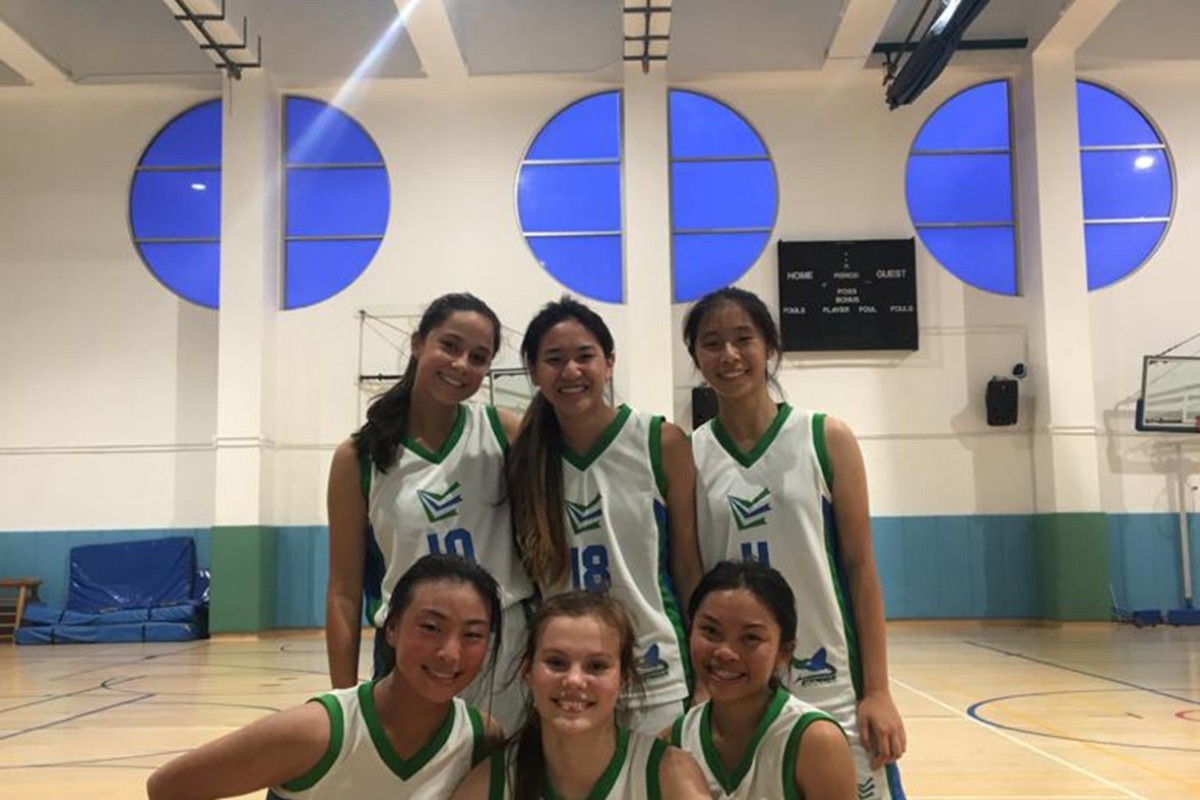
Leading Lights: SIS student Yan Phu excels in both the practice and theory of sports, and says it helps her understand the world better
We asked Hong Kong’s top scorer in IGCSE PE for tips on excelling in the theoretical and practical aspects of the exam
 Yan Phu (top right) said there is a lot to be gained from PE.
Yan Phu (top right) said there is a lot to be gained from PE. When we describe someone as a sports prodigy, we are usually referring specifically to their skill in a particular sport or the physical fitness of their body, not their knowledge of sports and the human body. Yan Phu, 16, is a sports prodigy
in both areas.
The Year 12 South Island School (SIS) student was awarded the Outstanding Cambridge Learner Award for being Hong Kong’s top scorer in Physical Education in the IGCSE examination earlier this year. She talked to Young Post about her love for PE, and shared some tips on how to do well in the exam.
To master the subject, Yan needed a thorough understanding of the muscular, skeletal, and cardiovascular systems, as well as talent in basketball, competitive swimming, personal survival, and open water life-saving.
From clear skin to better moods: here's why you should work up a sweat
The exam is divided into theory and physical tests, counting for 40 and 60 per cent of the total mark respectively.
Yan says it was her interest in the subject that helped her excel in the exams.
“Devoting a portion of my time to playing sports has interested and excited me throughout my life in primary and secondary school,” she said.
Face Off: should sport lessons be compulsory?
Yan, who is juggling 11 other IGCSE subjects and a Middle Years Programme (MYP) subject, said the PE syllabus stands out as it not only assesses her textbook knowledge, as all subjects do, but also her physical ability. She added there is a lot to gain from the subject.
“In a way, it was an incentive for me to further hone my skills in the sports I play and, ultimately to keep myself healthy, which helped me do better in my other exams,” said Yan.
In terms of the practical aspect of the subject, she recommends that students choose a mixture of team and individual sports, particularly those they are interested in or already play.
How this 16-year-old swimmer and cross country runner combines sports and science
Yan was already representing her school in basketball tournaments and is a confident swimmer so that helped her a lot with the subject, she said.
One tip was to write everything you know in the exam.
“Writing in detail has helped me scrape every mark possible for questions worthy of five or six marks, as examiners typically look for keywords and key terms related to the question topic.”
HKDSE: physical education, humanities, science ... should you drop an elective?
The theory side is extremely varied. As she enjoys studying biology, Yan said that she found the sports science component of the subject much easier than learning about, say, sport as an industry.
“But it was really interesting to learn how sports ties in with so many facets of the world, including psychology, economics, or even the media,” she says.
Recognising this helped her realise that the best way to better understand the different concepts in PE was to link them to what she’d already learned from other subjects. Yan said she found that revising by doing past exam papers was helpful, too. “It helped me to get used to the types of questions I would encounter, and made answering the questions in my actual exam seem like second nature.
